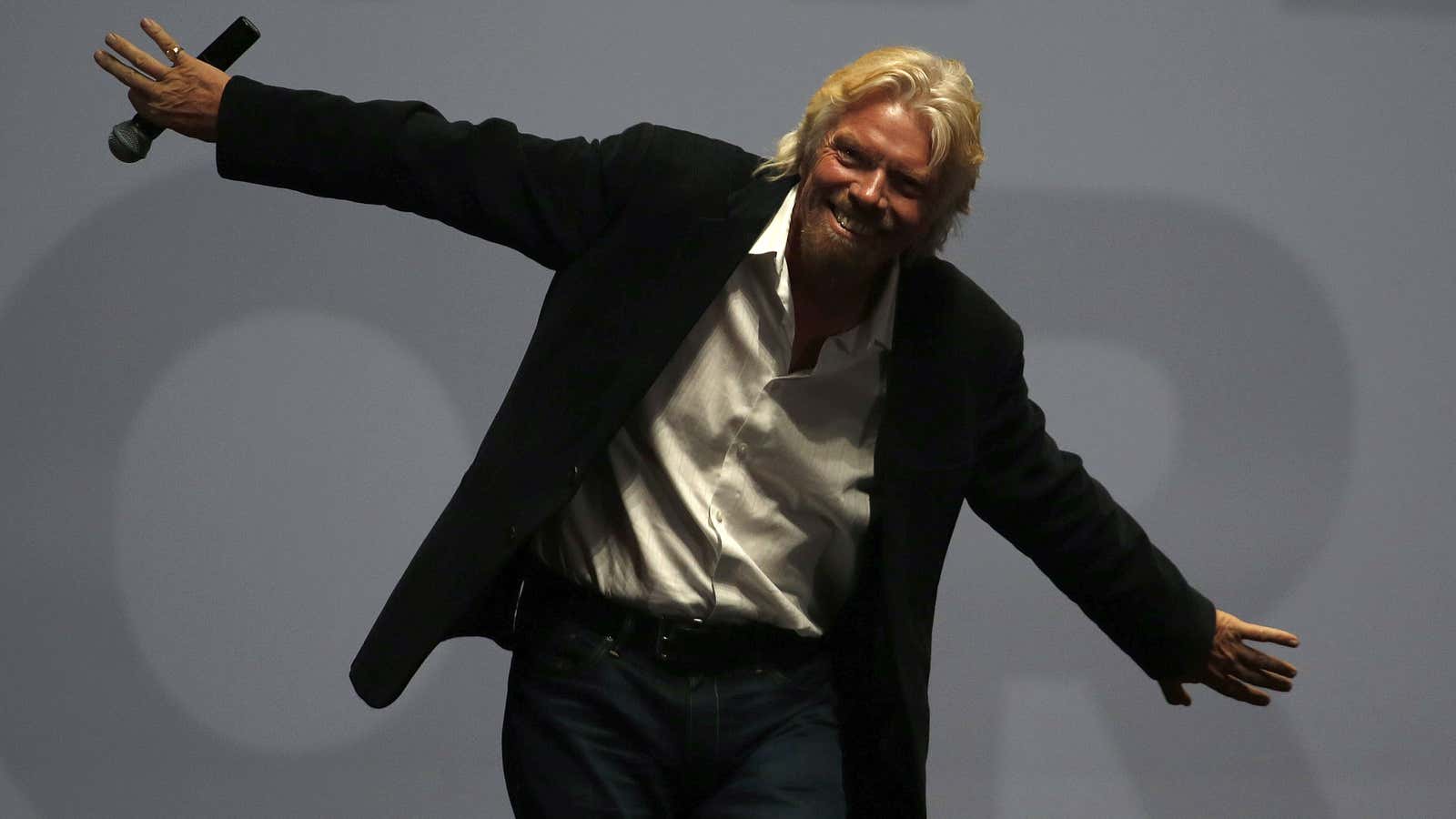Virgin America customers concerned about the company’s acquisition can commiserate with founder Richard Branson, who made clear he’s not a fan of the deal to sell Virgin to Alaska Air for $2.6 billion.
Branson wrote in a blog post:
I would be lying if I didn’t admit sadness that our wonderful airline is merging with another. Because I’m not American, the US Department of Transportation stipulated I take some of my shares in Virgin America as non-voting shares, reducing my influence over any takeover. So there was sadly nothing I could do to stop it.
Virgin America was started by Branson’s umbrella company, Virgin Group. But US law prohibits foreigners like Branson, who is British, from controlling more than 25% of an American airline. That’s why Virgin America is jointly controlled by Virgin Group and Cyrus Capital Partners, a hedge fund based in New York. The two companies own 54%.
The combination of Virgin America and Alaska Air would be a stronger competitor to the four major US carriers—American, Delta, Southwest, and United—which control about 80% of the domestic market. If the deal is approved, Virgin and Alaska will be the fifth-largest airline by traffic, edging out JetBlue, which also competed to acquire Virgin.
But culturally, Virgin and Alaska seem to be an odd fit. Virgin is known for its mood lighting, quirky charms, and outspoken founder. Alaska is a far more conservative company; it handed out prayer cards to passengers until 2012.
